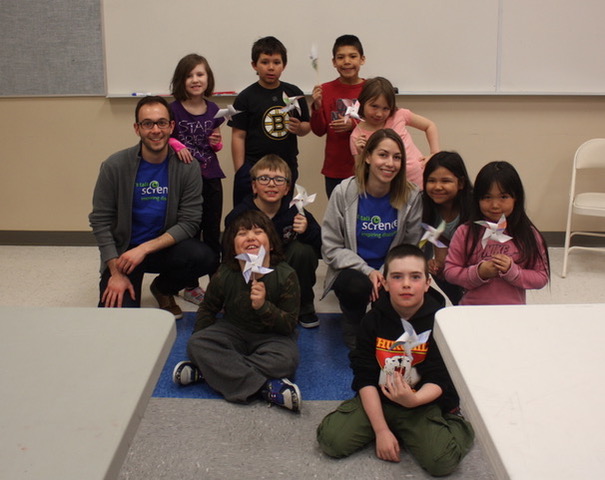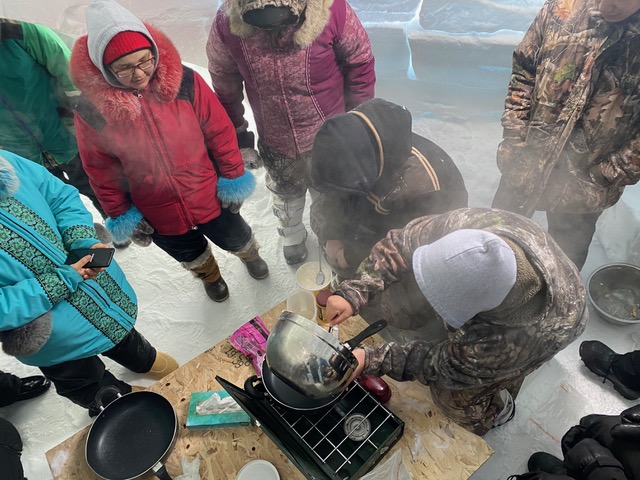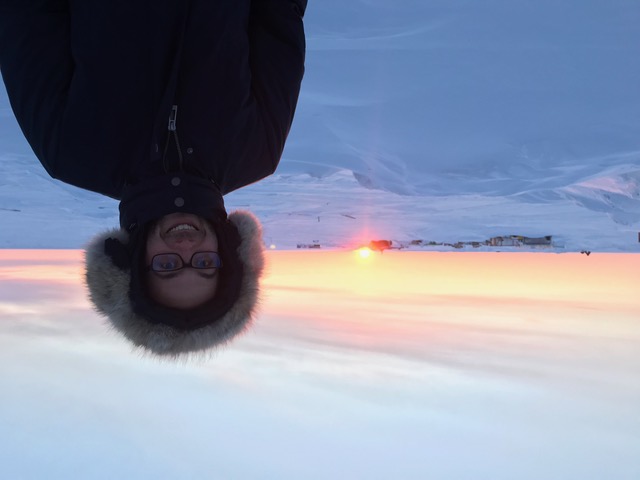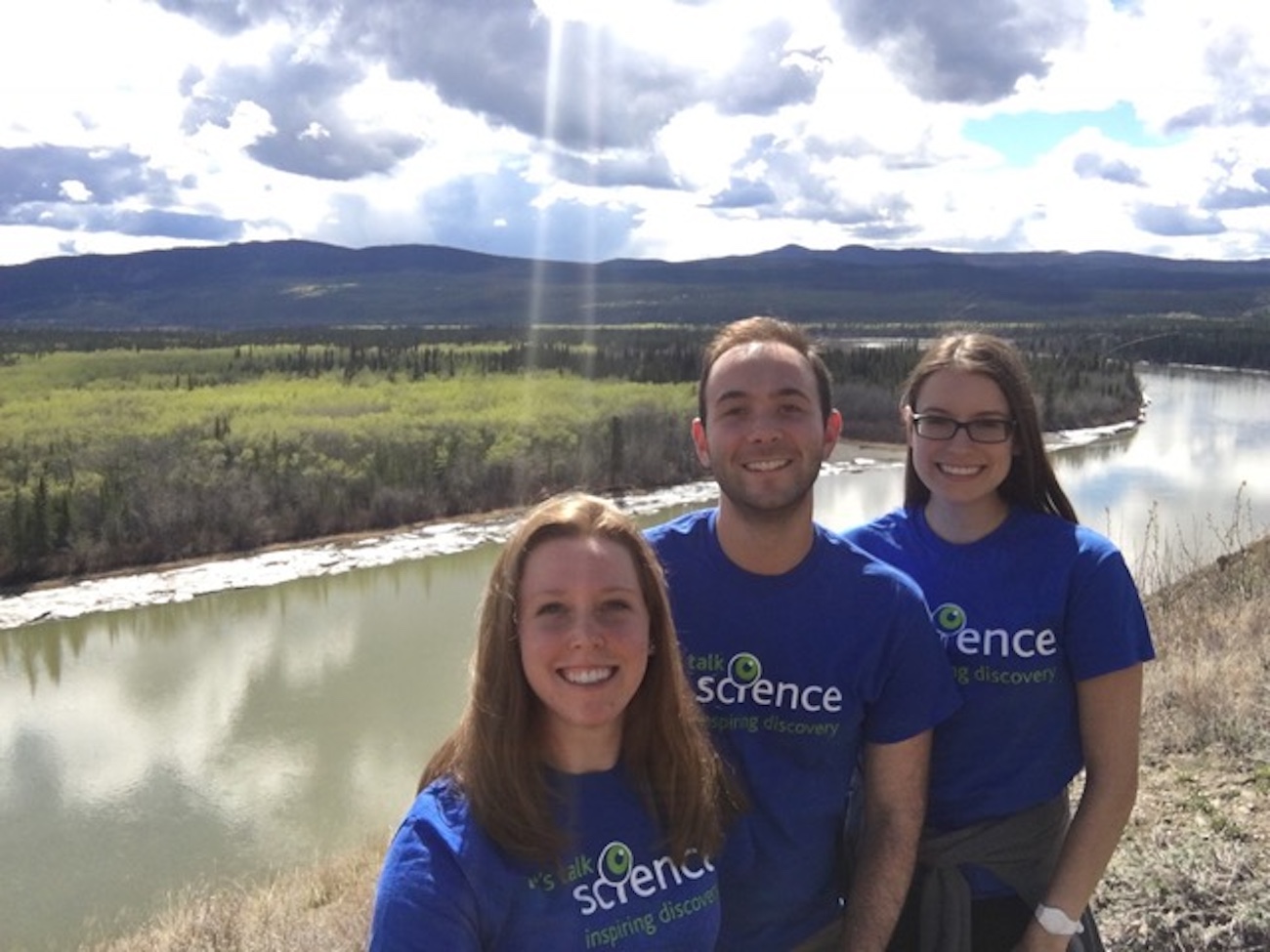Ian Dimopoulos was in his first year of science at the University of Winnipeg when he stumbled into Let’s Talk Science— literally! “On my first day of University, I was walking around campus with some friends and quite literally ran into a volunteer wearing a blue t-shirt,” Dimopoulos recalls fondly. As a recent high school graduate, he was trying to sign up for everything and wanted to escape his shell. “I signed up for so many things that day, and Let’s Talk Science was just one of them, but it was the only one that stuck.” Now, over a decade later, Dimopoulos is an educator living in Winnipeg, Manitoba, who has spent the last year teaching in Rankin Inlet, Nunavut. However, his career journey is full of formative experiences forged in the cradle of Let’s Talk Science.
In his first year at university, Dimopoulos volunteered more casually with the program, doing events on campus and a couple of site visits to community centres. “I hadn’t done too much work in education before,” Dimopoulos admits. “But I enjoyed the kids, and I enjoyed focusing on hands-on learning. I just realized: ‘Oh. This is kind of cool!’”

As he progressed through his degree, he took on more and more responsibility at Let’s Talk Science, helping the site organize Science Rendezvous before finally applying to be site coordinator. “In the spring of my first year of university, the site was looking for a new coordinator,” Dimopoulos says. “I remember going to the interview and feeling so confident! It was such a great experience!” He worked as a site coordinator for five years, sticking around longer than most other coordinators who typically serve a couple of years.

Being site coordinator gave Dimopoulos many opportunities to practice his leadership skills and take the initiative on new projects. “Throughout my time at Let’s Talk Science, I got to go to different communities and had some authority to plan projects in the north,” he says. “I enjoyed getting to build something. The program allowed me to share my voice and build something from the ground up.”
Throughout his time as site coordinator, Dimopoulos did much work to strengthen outreach with rural and Indigenous communities, receiving the most funding a site ever had to do rural outreach. He is particularly proud of the relationship the site cultivated with the Duke of Marlborough School in Churchill, Manitoba. In 2016, Dimopoulos and a group of volunteers travelled to Churchill for one week to bring hands-on STEM activities to students, a trip that became an annual endeavour for the U of W site and which continues to this day. In recognition of all his efforts, Dimopoulos received a nomination for the 2017 David Colcleugh Leadership Award for Let’s Talk Science Outreach Coordinators.
His outreach experiences with Let’s Talk Science kickstarted a lifelong passion for living and educating in the Far North. Shortly after finishing at U of W, the University of Winnipeg site asked Dimopoulos to partner with them to do an outreach project in Nunavut. “I think that that was a really pivotal moment in my story because it was the first time I got to be in Nunavut, and I got to do it with Let’s Talk Science,” he says. “I remember thinking while I was there: ‘Would I teach here?’ and the answer was a solid yes. I loved the idea of teaching in the Far North.” In Nunavut, Dimopoulos found new experiences, adventures, and connections. “I remember building a solid relationship with the kids very quickly. I realized they were excited to have me there; I was grateful to be there, and it was a really nice energy.” The differences in education between the south and north were stark, but welcome for Dimopoulos, who found that the strong community connections, vibrant culture, and a more relaxed way of life stood out.

For an entire year, Dimopoulos lived and worked in Rankin Inlet, NU, teaching general science to grades 9 through 11. Rankin is a hub community for the Kivalliq region, so teaching involves working with a diverse student population. “We try to do as much as we can to connect to life in Nunavut,” says Dimopoulos. “In the springtime, we do a big fishing trip and try to facilitate some seal hunts.”
He also felt fortunate to have Elders in Residence at his school who helped facilitate local connections and build relevance to learning, through activities and interactions with students. Most of Dimopoulos’ students are English as additional language learners, so even in the science classroom, the emphasis on literacy is strong: “If you are an educator practicing in Nunavut, you are an EAL teacher at large, no matter what subject you are teaching. It’s all about helping facilitate language development in English and Inuktitut.”

Dimopoulos emphasized the importance of language education in northern classrooms, explaining that it not only helped students unlock their potential, but also helped them better understand their culture, and equipped them with tools they need to advocate for themselves and participate in democracy. Dimopoulos admires STEM’s ability to inspire students and foster curiosity. “I think that STEM programming can unlock a lot of untapped potential in people,” he says.
“Good STEM programming shows students the world around them in a way that makes sense. It builds relevance between theory and the real world. It can make challenging topics seem exciting.” Dimopoulos believes good STEM programming, particularly in the North, can help empower individuals to unlock the potential in their communities and ultimately influence the world, making it a better place for all. “I’d like to see a world where everyone has a voice and the potential to live the lives they want to live,” he says. “Teaching in the North has exposed me to many significantly underprivileged circumstances, and I long for a day when everyone has the tools to achieve whatever it is they are looking for, no matter where they come from, where they go to school, or the circumstances under which they have no control.” He urges everyone to consider their privilege and place in the world to see how they can contribute in the most meaningful way. “I would encourage others to learn as much as they can and be willing to take risks,” says Dimopoulos. Specifically in the context of Nunavut, he encourages Canadians not to make premature judgments about places they have never been. “I would encourage everybody to visit with curiosity and respect and learn about the land and the culture for themselves,” he says. “There is just so much beauty and strength in Nunavut.”
Dimopoulos is now living in Winnipeg, Manitoba and working in a new position as a high-school English as an Additional Language teacher, something for which he feels his time in Nunavut prepared him well. He still hopes to continue to support education in Nunavut in whichever ways he can, with a long-term goal to support northern education in more of a fly-in, fly-out capacity so that he can build strong relationships with communities while still living in Winnipeg with his family. “I’m so thankful to the people of Nunavut for teaching me/giving me just as much, if not more than I was able to give them,” says Dimopoulos. “While I’m grateful for my new position in Winnipeg, I will never take for granted how welcoming and kind the people of Nunavut have been to me, and I am committed to supporting education in the territory in whatever way I can.” And this entire journey started with one fateful collision with a volunteer in a blue shirt.
